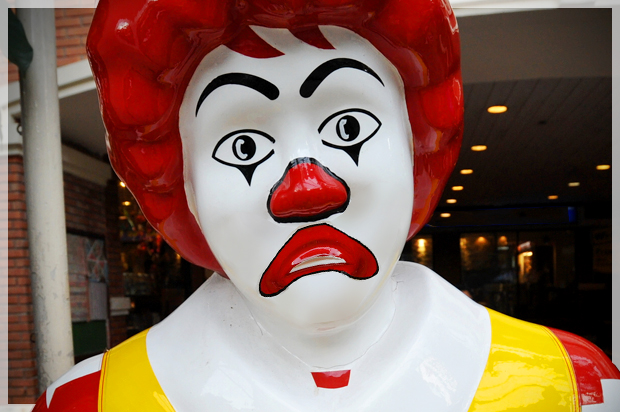The reign of the golden arches is ending. McDonald’s reported this week that its already-declining U.S. sales nose-dived in November, down 4.6 percent compared to last year. The company that introduced America to fast food, and has come to stand as its icon, is fading away.
It would be a mistake, however, to think that America’s falling out of love with fast food. It’s just that these days, we call it Chipotle.
There are plenty of reasons ascribed to McDonald’s downfall, but one constantly cited is that the post-“Super Size Me” world just isn’t eager to subject itself to the chain’s version of food any longer. Americans, the narrative goes, are demanding more of their meals. And the spoils are going to a new generation of “fast casual” providers who can prove they’re rising to the challenge.
McDonald’s certainly seems to believe this to be the case. While the company says it plans to pare its offerings down to the essentials, one of the new initiatives it’s spearheading in an attempt to reverse its fortunes is a sleek, touch-screen burger customization system, giving customers a greater degree of control over the options they do have — just like at Chipotle. Crucially, the company also seems to be realizing that there may be a problem with the food itself: building on its recent P.R. campaign aimed at demystifying the origins of McRibs and McNuggets, executives say they’re also considering paring down the list of ingredients in their highly processed offerings. In November, it rejected a new variety of genetically modified potato from its biggest supplier.
None of that, however, holds a candle to the image Chipotle is selling, best encompassed by “The Scarecrow.” The viral video’s success lay in its portrayal of everything it claims its food isn’t: unnatural, inhumanely raised, factory farm meat laden with God-knows-what chemicals and additives. “From the very beginning, Chipotle has used really high-quality fresh ingredients, and prepares all the foods we serve,” company spokesman Chris Arnold boasted to the AFP. “So from the beginning, we were doing something which is pretty different than what was happening in traditional American fast food.”
Chipotle’s opened itself up to a fair amount of scrutiny from critics who say it’s overselling just how enlightened its “farm to face” fare truly is, however. Most of its food isn’t organic, and the company still uses genetically modified ingredients. While its efforts to source local, humanely raised and antibiotic-free meat are encouraging, it isn’t always able to live up to its own high (and highly advertised) standards. In some cases, customers end up paying premium fare for a product that’s more of the same.
This is a system-wide trend. Promising signs that other fast food giants are beginning to reform their ways — Panera ditching artificial additives, Chick-Fil-A eliminating chickens raised with antibiotics, Burger King removing gestation crates from its pork supply chain and switching over to cage-free eggs, In-N-Out Burger paying its workers a living wage — are laudable, but they shouldn’t be mistaken for what they are: positive P.R.-garnering baby steps toward improvement of a system that requires a total overhaul.
What Mark Bittman calls Improved Fast Food is still, after all, fast food. It still comes laden with fat, sodium and calories, often in excess of what you’ll get from McDonald’s. Even Chipotle continues to pour Coca-Cola. “Natural,” one of the new guard’s go-to adjectives, is a word with plenty of positive connotations but no FDA-enforceable definition; “humanely raised,” as a standard for livestock, is fallible at best. And I hate to break it to friends of Five Guys and Smashburger, but there’s really no such thing as a “better burger” (or, for that matter, a better beef burrito) from a health perspective, and certainly not if you’re looking for a sustainable meal. Our growing understanding of diet’s contribution to climate change, on the contrary, holds that we’ve got to drastically cut down our consumption of meat, and of beef in particular.
But consumers don’t care how a Big Mac compares to a burrito in terms of fat and calories, according to a lengthy analysis of the company’s downfall in Fortune — they just care that Chipotle’s food is “seen as being natural, unprocessed and sustainable.” McDonald’s failing may not be that it’s so much worse than its competitors — it’s just that it’s so much worse at making itself look better. This is a food provider, after all, that’s still working to convince us that its burgers don’t contain ground-up worms.
That Americans are seeking out fresh, healthy food is unequivocally a good thing, one that’s already brought about some important reforms. But we’re still a long way away from revolution.

